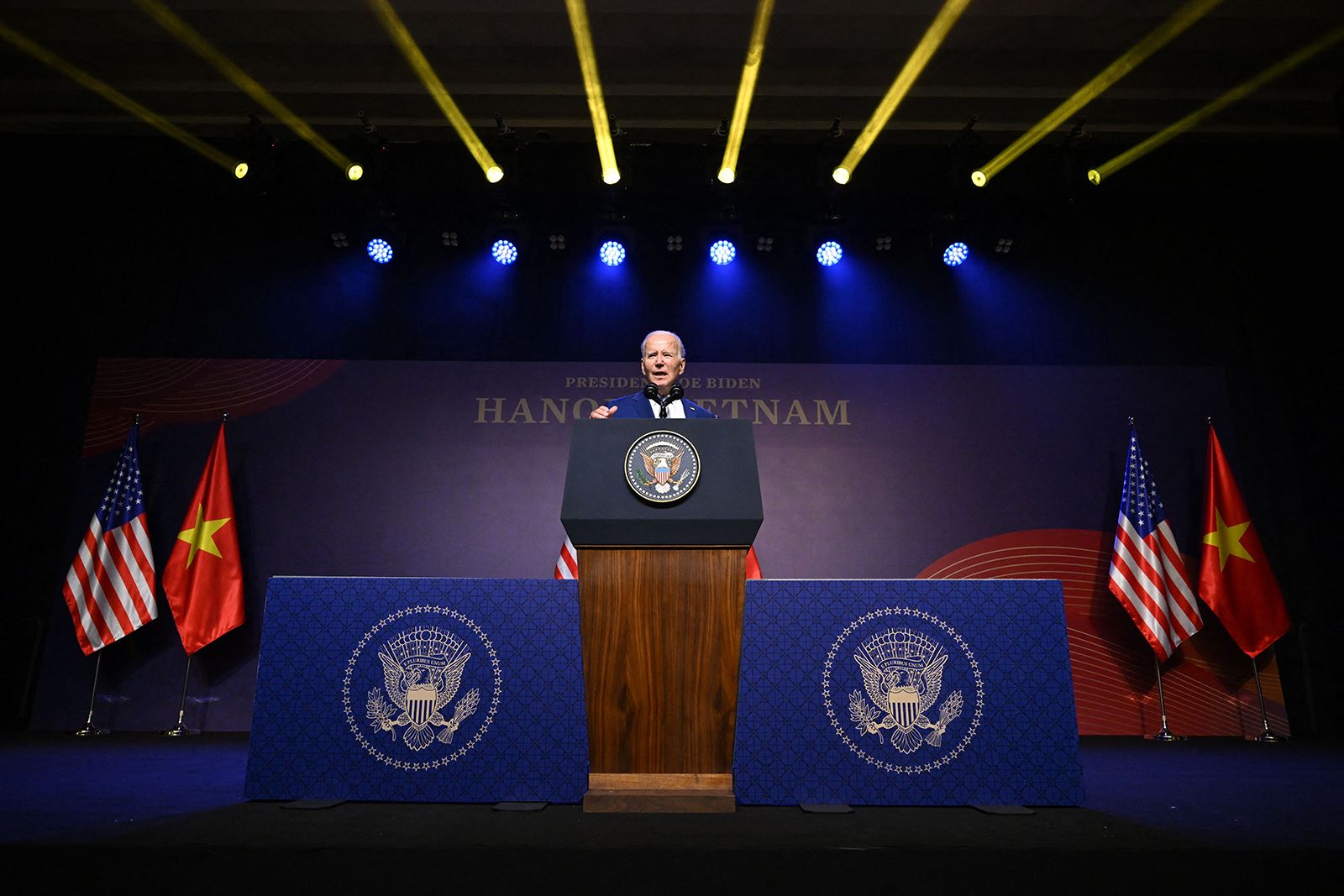President Joe Biden’s recent visit to Vietnam has not only deepened economic ties between the United States and Hanoi but has also set the stage for a transformative partnership. The visit, aimed at reducing America’s reliance on China, resulted in the formal upgrade of diplomatic relations to a “comprehensive strategic partnership.” This strategic move signifies a significant shift in the global economic landscape, as Vietnam becomes a formidable alternative for US businesses seeking to diversify their supply chains and technology partnerships. This report delves into the implications of this burgeoning relationship and its impact on both nations.
Vietnam-US Partnership: A New Dawn
As President Biden departed Vietnam following his historic visit, the world witnessed the formalization of a comprehensive strategic partnership between two nations that were once at odds. This upgraded diplomatic relationship carries immense significance in the contemporary geopolitical landscape, as it paves the way for closer cooperation in various sectors, including technology, trade, and investment. The move aims to bolster trust between the United States and Vietnam, providing America with a critical ally in Asia, a region marked by escalating political tensions with China.
Shifting Supply Chains: Vietnam’s Economic Boom
Vietnam’s economic growth has been nothing short of remarkable, with companies like Apple and Intel significantly expanding their presence in the country to diversify their supply chains. The White House announced a groundbreaking $7.8 billion deal between Boeing and Vietnam Airlines, expected to create more than 30,000 jobs in the United States. The surge in trade between the two countries is evident, with the United States importing nearly $127.5 billion in goods from Vietnam in 2022, solidifying Vietnam’s position as America’s eighth-largest trading partner.
Vietnam’s Role in High-Tech Industries
Vietnam’s appeal goes beyond being a manufacturing hub, as it positions itself as a key player in high-tech industries. The semiconductor sector, marred by tensions between the United States and China, is finding a reliable partner in Vietnam. Intel’s commitment of $1.5 billion to establish its largest single assembly and test facility in Vietnam underscores the country’s growing significance in this critical industry. With Washington reinforcing its ties with Hanoi, experts predict an acceleration in technological collaboration, ensuring a steady supply of essential components for the United States.
As the world witnesses the deepening of economic ties between the United States and Vietnam, a new alternative to China emerges on the global stage. This comprehensive strategic partnership not only strengthens trust but also offers economic stability and technological collaboration for both nations. While challenges remain, Vietnam’s remarkable growth and its role in high-tech industries make it an attractive proposition for US businesses looking to diversify and secure their supply chains. In this evolving landscape, Vietnam’s ascension as a vital US ally heralds a brighter future for both nations and underscores the shifting dynamics in the global economy.















